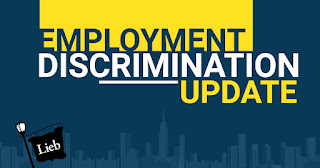The Equal Employment Opportunity Commission (EEOC) has released official Enforcement Guidance on Harassment in the Workplace, which is effective immediately.
The Guidance, EEOC-CVG-2024-1, is designed to "serve[] as a resource for employers, employees, and practitioners; for EEOC staff and the staff of other agencies that investigate, adjudicate, or litigate harassment claims or conduct outreach on the topic of workplace harassment; and for courts deciding harassment issues."
This resource includes an explanation of the definition of each covered protected characteristic, including race, color, national origin, religion, sex, age, disability, genetic information, and retaliation. More so, for each protected characteristics are numerous examples of what type of harassment is actionable.
In evaluating the examples, the Guidance provides:
These are key questions that typically arise in evaluating a hostile work environment claim and whether it amounts to unlawful harassment:
- Was the conduct both objectively and subjectively hostile?
- Objective hostility: was the conduct sufficiently severe or pervasive to create a hostile work environment from the perspective of a reasonable person?
- Subjective hostility: did the complainant actually find the conduct hostile?
- What conduct is part of the hostile work environment claim?
- Can conduct that occurred outside the workplace be considered?
- Can conduct that was not specifically directed at the complainant be considered?
As a reminder, the Guidance provides, at Example 39, that a hostile environment needn't cause a resulting decline in work ability or psychological injury to be actionable. Specifically, it states: "Based on these facts, Irina was subjected to a hostile work environment. Although the harassing conduct did not result in a decline in her work performance or in psychological injury, the nature of the conduct and Irina’s reactions to it were sufficient to establish that the ongoing sexual conduct created a hostile work environment because the conduct made it more difficult for a reasonable person in Irina’s situation to do her job."
That said, the Guidance goes into declining work ability and injuries across the board. It discusses employer liability for acts of alter-egos, supervisors, and co-workers. It explains systemic harassment and how a pattern or practice of harassment needs to be addressed by an employer.
Overall, this is the go to resource of Title VII discrimination and best practices in the workplace moving forward.




